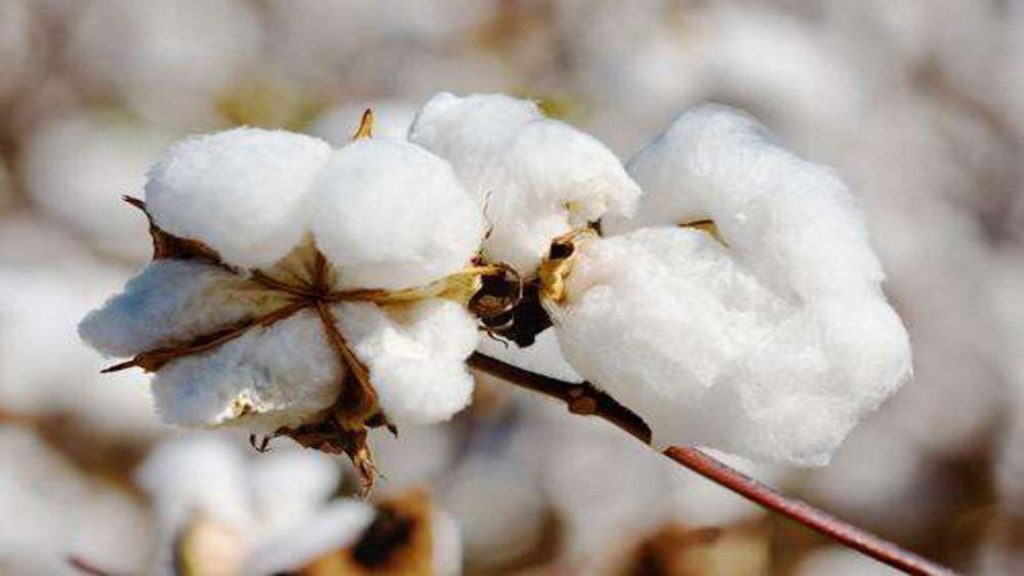Pakistan’s cotton market saw wild swings in the past week, as growers and ginners dumped their stocks after the Eidul Azha holidays, sending prices to a record low.
The situation worsened when the local authorities ordered ginners to buy the crop at the government fixed rate, prompting them to boycott purchases and halt operations.
Cotton growers and ginners resorted to panic selling, causing an unusual decrease in cotton prices to a record low level of Rs16,000 to Rs16,200 per maund.
However, in the early trading hours on Wednesday prices started to improve, and by evening there was an increase in the cotton prices. In Sindh, cotton prices reached Rs17,000 to 17,300 per maund, while in Punjab, the price ranged from Rs17,500 to 17,700 per 40kg.
On the other hand, on Wednesday, the Deputy Commissioner of Sanghar, a district in Sindh, directed ginners to buy phutti (seed cotton) at the government-fixed price of Rs8,500 per 40kg, which resulted in ginners ceasing to buy the commodity. As a result, cotton growers became distressed, and business activities were halted. The police in some ginning factories even removed ready trollies for cotton delivery.
In Sindh, cotton prices ranged from Rs17,000 to Rs17,300 per maund, and phutti prices ranged from Rs7,000 to Rs7,300 per 40kg. In Punjab, cotton prices ranged from Rs17,500 to Rs17,700 per maund, and phutti prices ranged from Rs7,200 to Rs7,700 per 40kg. In Balochistan, cotton prices ranged from Rs17,000 to Rs17,200 and phutti prices ranged from Rs7,200 to Rs7,600 per 40kg. The prices of Banola seed and oil remained stable.
The Karachi Cotton Association’s Spot Rate Committee reduced the spot rate by Rs500 per maund, setting the spot rate at Rs17,000 per maund.
Karachi Cotton Brokers Forum Chairman Nasim Usman said that there had been fluctuations in cotton prices in the international cotton market. According to the USDA’s weekly supply and demand report, sales of 1.920 million bales were recorded for the year 2022-2023. China remained the largest buyer, purchasing 617,000 bales, followed by Mexico at 331,000 bales, Vietnam at 132,000 bales, and Japan at 106,000 bales. Pakistan purchased 44,000 bales, and the total arrivals were 2.610 million bales. Turkey imported 643,000 bales, while China imported 623,000 bales, and Pakistan imported 410,000 bales.
In another development, the meeting of the Central Executive Committee of the Pakistan Cotton Ginners Association (PCGA) was held at the PCGA Head Office in Multan, chaired by PCGA former deputy chairman Dr Jassumal.
The meeting discussed the unfair taxes imposed on the ginning industry, including sales tax on Banola, fixed charges by NEPRA, and notices by the National Highway Authority (NHA).
The meeting unanimously decided that ginners throughout Pakistan would suspend the purchase of cotton until their demands were met. The government’s failure to fulfil its repeated promises, as highlighted by the recent imposition of sales tax on Banola and the support price of Rs8,500, was discussed.
As the rate has fallen below Rs8,500, the government has not formulated any policy to make it viable. The PCGA leadership emphasised that undue pressure should not be exerted on cotton ginners, and until their demands were met, they would halt the purchase of cotton.
Former chairman of the PCGA, Dr Jassumal, had also held a press conference in Hyderabad to express his protest. Furthermore, Senator Sehar Kamran tweeted that the government had fixed the rate of 40kg of cotton at Rs8,500, but local buyers and factory owners were refusing to comply with the government’s instructions.
Currently, cotton growers are receiving Rs7,200 per 40kg of phutti, which is insufficient to cover the rising costs of diesel, fertilisers, seeds, pesticides, and other related expenses. This has led to a significant increase in production costs.
Although government officials and deputy commissioners have taken notice of this situation, implementing the official rates remains a serious challenge. This ongoing situation has had a negative effect on cotton growers, who cannot sustain their stocks for an extended period, particularly if it rains. In such a situation, the price of cotton may decrease further.
Cotton growers in Sindh have already suffered significant losses due to the disastrous monsoon season last year, and they have not yet recovered. On the other hand, factory owners and ginning mills are facing their own challenges and constraints.





